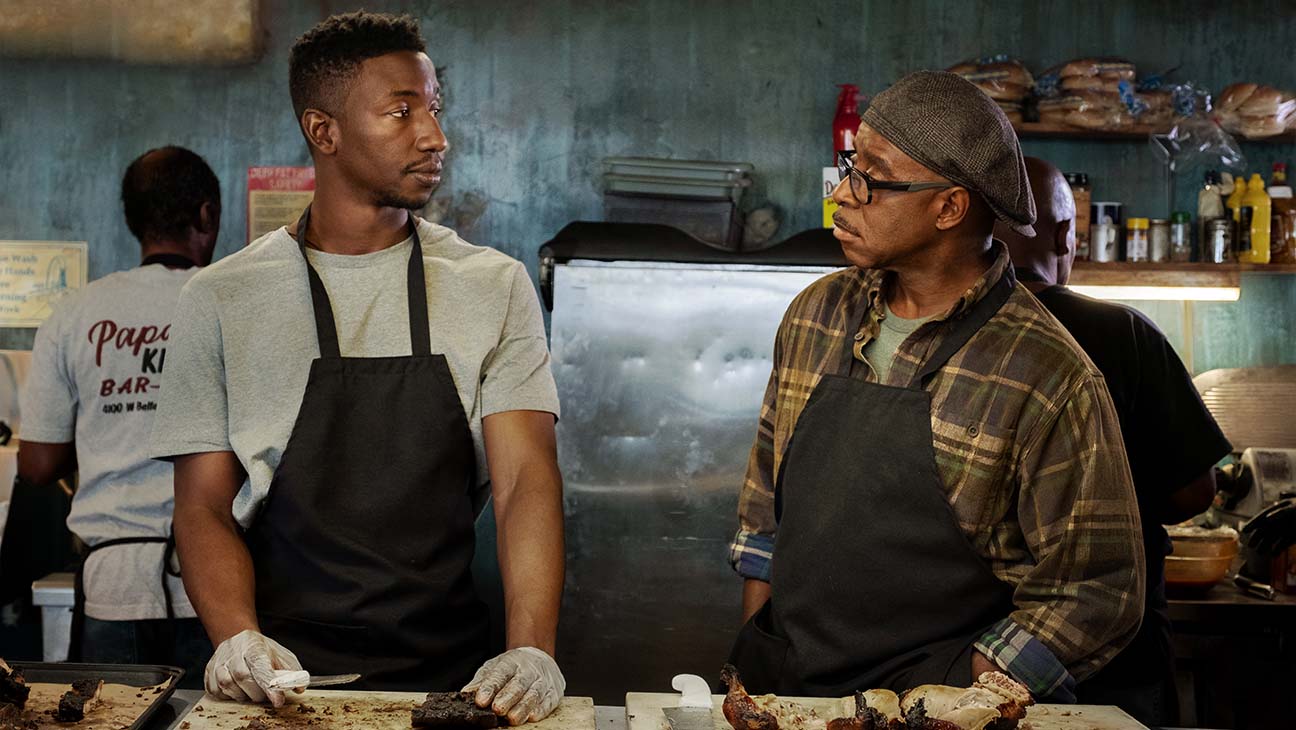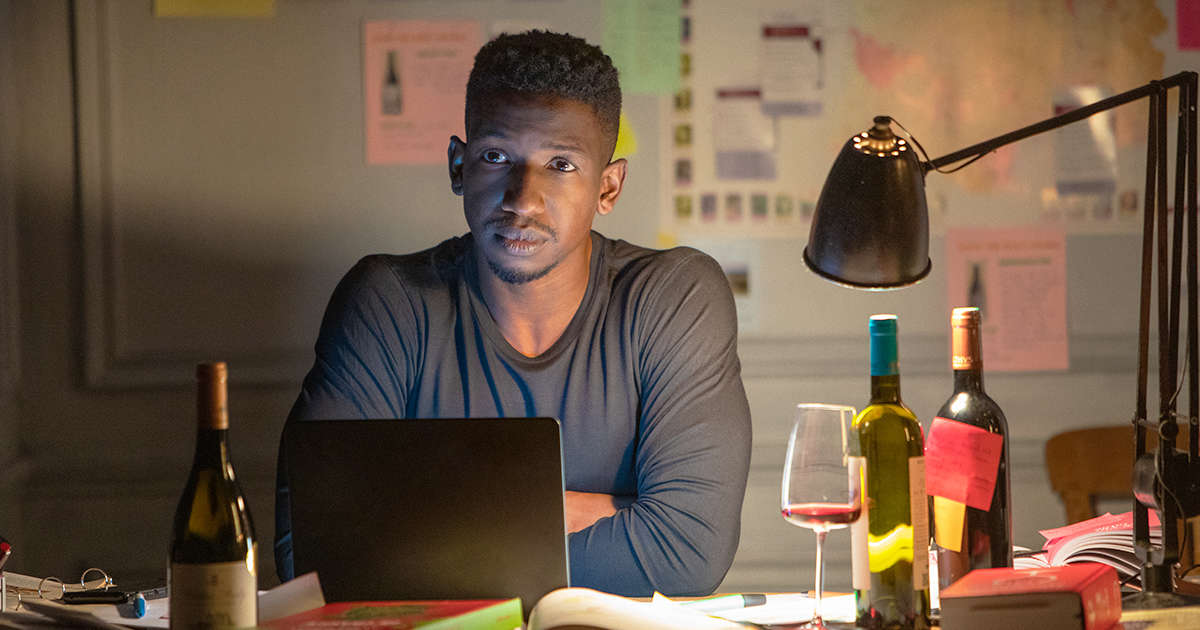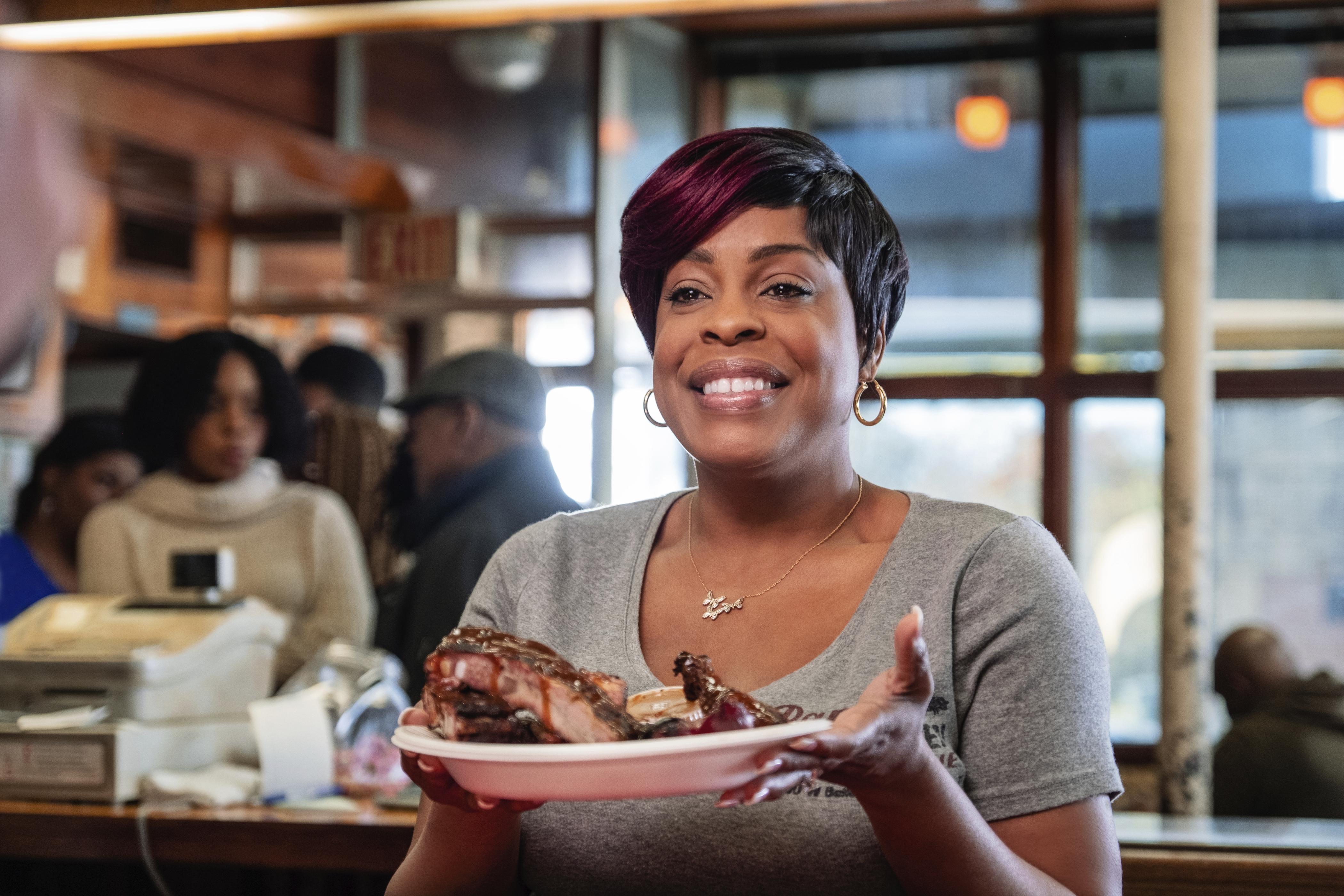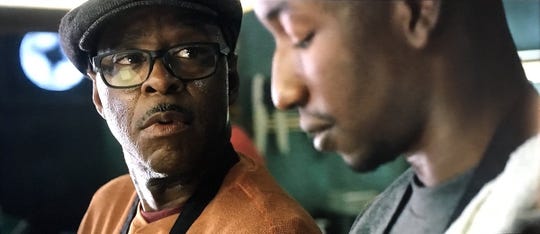Uncorked starts out with an unlikely comparison, and then goes on to embody that apparent disjuncture. Elijah (Mamoudou Athie), the heir apparent of a Memphis barbecue joint, is actually a wine aficionado. That’s not the disjuncture, or at least, not the primary one. As he’s stacking bottles of wine for his duties in a local wine club, a new customer comes in, and she’s as unfamiliar with wine as she is attractive. In a blend of flirting and practical advice, he compares different varietals of wine to different hip hop artists – chardonnay is the Jay-Z of wines, for example. She gets it. He gets a date.
Prentice Penny’s film then goes and doubles down on that comparison, using banging hip hop as its musical score – and not even the type his traditional parents, who want him to go into the barbecue business, might be able to listen to without blushing. No, Hit-Boy’s original score is full of braggadocio and bad language. In a movie about a man who wants to become a sommelier.
The point Uncorked is making is that apparently incongruous desires can exist inside any person – especially if their portrayal is not limited to the shortcomings of traditional Hollywood stereotypes. People contain multitudes, and so does this movie, even if those multitudes exist within the fairly conventional parameters of a story about a young man who doesn’t want to follow in his father’s footsteps.
That father is played excellently by Courtney B. Vance. He once sacrificed his own ambitions of becoming a teacher in order to carry on the family business that his own father turned into a Memphis institution. Elijah, being of the 21st century, does not feel the same obligation. Or rather, he does, but he also feels an obligation to be true to his own path, a very millennial pursuit that his parents don’t understand. His mother (Niecy Nash) gets it; she remembers that every parent’s best desire is to see their children happy. His father? Well, he interacts with Elijah in grumbled passive-aggression.
As a compromise, Elijah enrols in school to begin the difficult road to becoming a master sommelier while continuing his shifts at the restaurant. And boy is it difficult. He’s not trying to become just any ordinary wine expert. He’s training his palette to be able to identify a mystery wine not only down to the varietal, not only down to the region in which it was produced, but to the actual vineyard and year that the grapes were harvested. He’s likely to put in hours and hours of study and still fail.
Penny brings a really engaging style and look to Uncorked, thanks in part to cinematographer Elliot Davis, who was actually Steven Soderbergh’s DP on Out of Sight. If your mouth isn’t watering at the sight of brisket being slowly sliced, it’s at the rich, burgundy-coloured wine cascading into a glass. Penny knows that in any movie about food, the food itself is part of the escapism, even as just a secondary pleasure.
And it is indeed secondary to what Penny’s film has to offer. The writer-director is doing something interesting here in his explicit attempt to bridge worlds. There’s a definite subsection of movies produced in America that are designed to appeal to an African-American audience only; that doesn’t limit their effectiveness or their appeal as examples of the art form, but it does tend to limit their ambition. Penny wants to challenge filmmakers who have self-imposed restrictions on what they feel it’s viable include in a movie for this target demographic. If the audience doesn’t know that much about wine, well, let’s teach them.
In Athie, he’s got a really good personification of that bridge. The actor has got a kind of bookish hyperintelligence to him, and you can feel his discomfort with having to fill the roles proscribed for him; not just as custodian through descent of a barbeque joint, but relating to any of the apparent signifiers that have grown out of his Memphis upbringing. When he laughs a little bit at learning his dad’s one-time ambition of becoming a teacher, his father shoots back: “What, you don’t think it’s important for little black kids to learn how to read?” Elijah drops the grin and says “Yeah, dad, I think black kids should read.” But the subtext of the conversation is “It’s not all about race. And I want to live in a post racial world. And in the 21st century, maybe we can really do that.”
The subtext of Uncorked is a lot more interesting than the text. Probably because he has to, Penny provides a succession of the type of scenes you would expect in a movie like this. There’s the predictable conflicts between Elijah’s ambition and his duty; the ebbs and flows in his relationship with his supportive girlfriend (Sasha Compere), against whom he nonetheless chafes because she uses hard truths to push him; the moments of doubt in his abilities as a budding sommelier; the unexpected family tragedy that refocuses his priorities. You aren’t watching Uncorked because it has revolutionized this type of narrative.
The reasons you are watching it, though, are good ones. Here is a movie that exists within the expected frameworks of the family drama and relationship movie where the protagonist weighs up his options for how to live his life, yet it also pierces those frameworks in interesting ways, which challenge the medium on the whole. Sea changes in perception are advanced through instances of gradual change, and Uncorked is one of those.



